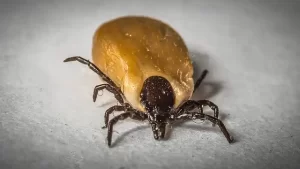Do people still need vaccines after the COVID-19 oral medicine is available?
- Engineered Soybeans with Pig Protein: A Promising Alternative or Pandora’s Dish?
- Severe Fever with Thrombocytopenia Syndrome (SFTS): A Tick-Borne Threat with High Mortality
- Why Isolating Bananas Extends Their Shelf Life?
- This common vitamin benefits the brain and prevents cognitive decline
- New report reveals Nestlé adding sugar to infant formula sold in poor countries
- Did Cloud Seeding Unleash a Deluge in Dubai?
Do people still need vaccines after the COVID-19 oral medicine is available?
- Red Yeast Rice Scare Grips Japan: Over 114 Hospitalized and 5 Deaths
- Long COVID Brain Fog: Blood-Brain Barrier Damage and Persistent Inflammation
- FDA has mandated a top-level black box warning for all marketed CAR-T therapies
- Can people with high blood pressure eat peanuts?
- What is the difference between dopamine and dobutamine?
- How long can the patient live after heart stent surgery?
Do people still need vaccines after the COVID-19 oral medicine is available?
A few days ago, the oral anti-coronavirus drugs developed by Merck and Pfizer have been shown to be taken in the early stages of infection, which can significantly reduce the risk of hospitalization and death for high-risk patients.
Both oral drugs are awaiting approval from the U.S. Food and Drug Administration and reportedly may be on the market in December.
Recently, American disease experts worry that oral drugs may further affect the vaccination, warning that oral drugs cannot replace vaccines, and vaccines can provide effective protection for a wider range of people.
According to a poll conducted by the Caesars Family Foundation, vaccination in the United States has slowed sharply due to differences in partisan opinions, doubts about the safety of vaccines, and mandatory vaccination orders. Currently only 72% of American adults have received the first dose of the vaccine.
“Oral medication may be a waste of efforts to encourage vaccination.” said Scott Lazan, a health communication expert at the City University of New York, who conducted a questionnaire survey of 3,000 U.S. citizens, and the results showed that one in eight respondents Said that they are willing to take oral medications but refuse to vaccinate, “This is a very high percentage.”

On November 8, thousands of American citizens protested in downtown Los Angeles against compulsory vaccination
Several infectious disease experts and the CEO of Pfizer said in an interview with the US media that the new treatment of the COVID-19 oral drug does bring hope to curbing the epidemic, but at the same time it should not be confused with the efficacy of a vaccine, and oral drugs cannot replace vaccines. .
It is impossible to rely entirely on oral drugs. On the one hand, some patients with COVID-19s need monoclonal antibody injection therapy to effectively prevent the disease from getting worse. On the other hand, COVID-19 patients use oral drugs to prevent the virus from replicating in the body to prevent the disease from getting worse, but it is also challenging to use oral drugs as soon as possible.
Because although both doses of oral drugs are recommended to patients within 5 days after infection, the new coronavirus began to replicate in the body to the time it caused inflammation. It is different for each patient, so each person’s medication window is different. “Once there is shortness of breath or other symptoms, the body is at the stage of immune dysfunction, and antiviral drugs have little effect.” said Dr. Celine Gund, an infectious disease expert.
“To rely entirely on oral antiviral drugs is like rolling a dice. Although it is better to use it than not to use it, it is a very risky game.” said Peter Hotz, a vaccine expert and professor of molecular virology.
Many people may not have abnormal reactions in the early stages of infection, and some even feel very good about themselves, but their blood oxygen saturation is already decreasing. “Many times, when you realize it is too late.”
Do people still need vaccines after the COVID-19 oral medicine is available?
(source:internet, reference only)
Disclaimer of medicaltrend.org
Important Note: The information provided is for informational purposes only and should not be considered as medical advice.



